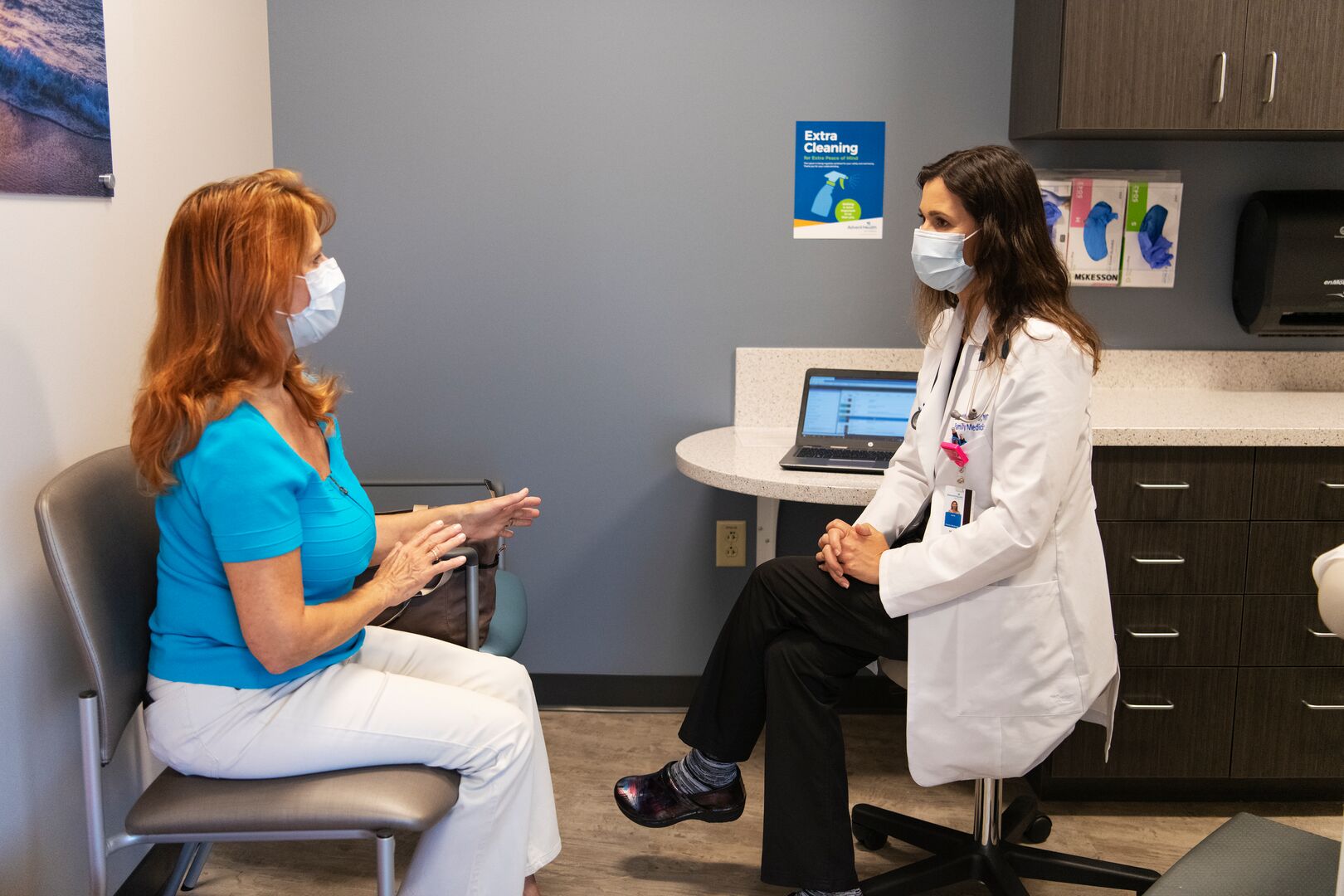So you’ve made an appointment to see your doctor. Maybe it’s for a specific health concern, or maybe it’s a routine checkup to maintain your wellness.
You’re off to a great start — your doctor is like a quarterback for your health. While an urgent care or emergency room can take care of today’s problems, a family doctor can see the whole you.
(If you don’t have a primary care doctor, check out our easy online tool to find one near you.)
They can separate fact from myth and help you make sense of something you may have read or researched online.
Now that you’ve made an appointment, you’ll want to get the most out of your limited time with the doctor.
That means being heard and examined and leaving the office understanding what to do next. You can be an active force in your own health, but you need to see the path before you can walk it.
Though doctors try to be clear, it can be difficult to understand medical terms that they take for granted. Making sure you truly understand what’s being said is as important to them as it is to you.
We’ve assembled a list of steps you can take both before and during your appointment to ensure you’ll get the most out of it.
Getting Ready for Your Appointment
Here are some suggestions on how to make doctor visits more productive:
Bring someone you trust. Especially if you’re not feeling well, it can be hard to understand what’s being said. Another person can take notes, which will help you remember specific facts about the visit.
Write your questions down. It’s probably happened at least once: The question was on the tip of your tongue, but you only remembered it in the parking lot afterward. Write down questions, such as what medication you need to take or a description of how you’re feeling. What seems clear ahead of time can be hard to describe to the doctor.
Prepare Questions
What questions you have will depend on the reason for your appointment. But some basic ones include:
- Why do I need this treatment and what are my other choices?
- What are the side effects of this treatment or what other problems (your doctor may call them “complications”) could it cause?
- What should I do, specifically, to schedule this blood test (if you have one)? When will I get the results?
- Where can I find other information about my condition, including a brochure or website?
We know that asking questions can be hard. You may feel like your doctor will tell you everything that’s important. And while doctors try to put themselves in your shoes, they depend on patients to ask questions.
For a longer list of questions to ask during a checkup, check out this list of questions from the National Institutes of Health.
These days, most people turn to the internet first about their health issues. That’s normal — the answers may be at your fingertips, after all — and it would be silly to tell you to stay offline.
But we want you to come to the appointment armed with the correct information.
What to Ask ‘Dr. Google’
There are reputable, authoritative websites, but there’s also a lot of unreliable information online. How can you tell the difference?
Though there are thousands of places to find health information, a handful of accurate websites have answered the most common health issues. If you have a question, try searching for it within one of the following sources:
- MedlinePlus (National Library of Medicine)
- Centers for Disease Control and Prevention
- American Academy of Family Physicians
- U.S. Department of Health and Human Services
- National Institutes of Health
If you go through Google, add the source to your search terms. For example, if your child has a sore throat and you think it might be strep, you can type “is my sore throat strep CDC” into Google and get this relevant article as your first response.
Words to Learn
Getting the most out of your visit may mean brushing up on your vocabulary. Doctors use these words every day, so it’s easy for them to assume you know what they mean. Here are a few of the most common:
- Acute — a condition that happens quickly and needs quick attention (like a broken bone or heart attack)
- Chronic — a condition that takes a long time to develop. This type of condition is often able to be treated but perhaps not cured (such as diabetes and asthma)
- Benign — not cancerous
- Malignant — cancerous cells that can spread to other parts of the body
If you have to ask what a word means, don’t be embarrassed — it’s your doctor’s job to explain your health to you in ways you understand.
Even if you’ve done the research and written down your questions, it’s important to make sure you get answers during the appointment itself.
What to Do During the Appointment
First, make sure you ask your most important questions first. Some of your most burning questions are likely to be around what’s called your “treatment plan.”
This includes information on what illness you may have — perhaps a brochure, a website to reference or an informational packet printed by your doctor and give to you as you leave. It also describes both what your doctor will do (like prescribe medicine) and what you will do, like change what you eat.
If it is at all complicated, ask for it to be written down. Understanding your treatment plan is essential. After all, most of our health is determined by what happens outside of the doctor’s office.
If, after you leave, you have more questions or are confused, call your doctor’s office; they may even have a nurse line you can call for immediate answers.
Find Your Partner in Lifelong Health
You know that taking your car to a mechanic for routine maintenance is the best way to keep it on the road.
It’s the same with your own health. The best time to focus on your long-term well-being is when you’re healthy.
We want to be your partner in achieving whole-person health. That means a healthy, active body, a clear mind and a vibrant spirit. If you’re looking for a doctor close to home, no matter where you call home, visit the AdventHealth website.






